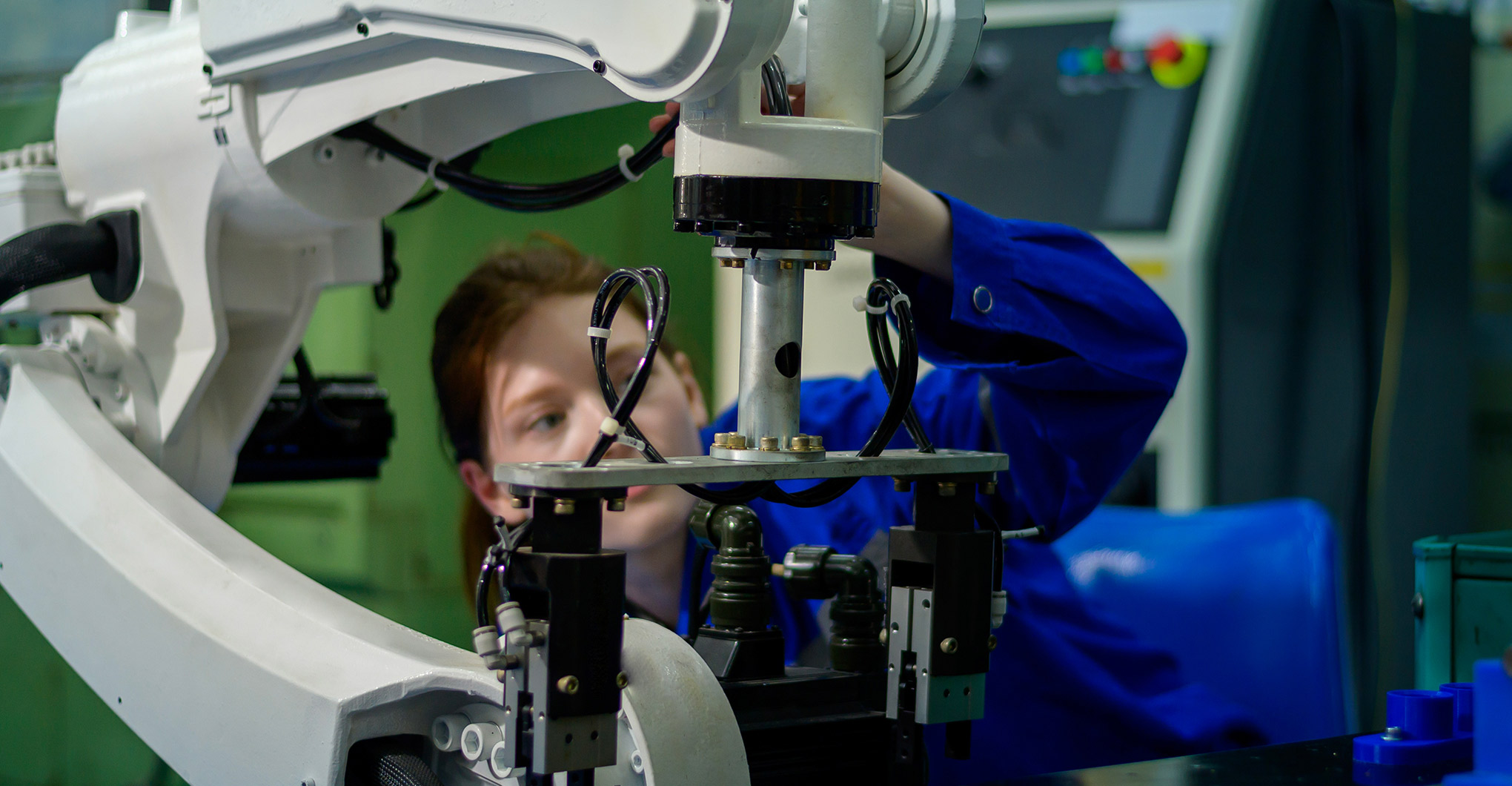
Manufacturing in the UK is no longer business as usual. From raw-material cost inflation and supply chain shocks to rapid technology shifts and workforce shortages, the pressure is on. If you run a manufacturing business in Greater Lincolnshire, you’re likely feeling this too and the question is: how do you turn today’s turbulence into tomorrow’s opportunity?
The regional manufacturing landscape
Here in Greater Lincolnshire, manufacturing is a powerhouse for the local economy. The manufacturing and engineering sector employs around 66,000 people – about 14% of all employment in the region. It contributes approximately £5.6 billion to the local economy, around 21% of local economic value, and consists of some 2,400 businesses, with micro-enterprises making up about 80% of those.
This scale means the fundamentals of the region’s manufacturing base matter, not just to individual firms, but to the broader ecosystem: supply chains, skills pipelines, and growth pathways.
The pain points manufacturers are facing
1. Skills shortages and workforce development
One of the recurring issues for manufacturers is access to the right skills. New technologies, automation, and digital systems all require new capabilities. For the region, when almost 80% of businesses are micro or SMEs, that means many firms may lack the internal capacity or budget to invest heavily in training, meaning the risk is that the pace of change outstrips the pace of upskilling.
2. Productivity and technology adoption
Growth and competitiveness now hinge on how effectively firms adopt technology: digital tools, automation, data analytics. Nationally, digital transformation presents both opportunity and challenge, particularly for smaller players who may be constrained by cost, change-management capacity, and integration.
In Greater Lincolnshire, the sector has grown 64% in real terms over the past decade, which is well above the national average of 29% for England. But growth alone doesn’t guarantee resilience: with smaller firms in the region, the gap can widen between “leaders” who move fast and those who struggle to keep up.
3. Supply chain and cost pressures
Whether it’s global disruption, shipping delays, raw-material inflation, or energy costs, these are very real. UK supply chains are under a ‘perfect storm’ of overlapping challenges: geopolitical, labour, cost, and digital visibility. A national survey noted that over 60% of respondents cited rising energy costs as a key barrier.
For manufacturing firms in Lincolnshire, many of whom may be in supply chains, smaller scale or niche operations mean a strong risk of margin squeeze, delayed lead-times, and competitive disadvantage.
4. Sustainability, net zero, and regulation
Pressure for green transition is rising. Whether through energy efficiency, waste reduction, or meeting customer and supply-chain demands for greener manufacturing, firms must act. The regional support network has pointed out the need to increase resource efficiency, reduce carbon emissions, and transition to greener business models.
For many firms this dual challenge of doing today’s business while preparing for tomorrow’s regulation or customer demand can feel like operating on two fronts.
5. Strategy, resilience, and growth in a volatile world
With the macroeconomy uncertain, export markets shifting, domestic demand weaker, and cost profiles unpredictable, manufacturing leaders must sharpen their strategic thinking. For a mid-sized manufacturing firm in Greater Lincolnshire, that could mean finding ways to diversify markets, protect margins, and build digital and operational resilience.
Why this matters for you and for the region
If any one of these areas gets left behind, the implications are real: lost competitiveness, higher cost base, slower growth, supply chain exclusion. And that matters in a region where manufacturing not only lives in firms but in entire local economies.
Yet the flip side is that because these pain points are real, they also represent opportunity. Firms that act by investing wisely, adopting technology, upskilling their workforce and building resilience will have tangible advantage. In the local context, being ‘smarter’ about manufacturing can accelerate growth, improve margins, strengthen supply-chain relationships, and open new markets.
Turning insight into action starts with small, strategic steps
Here are some practical strategic moves for manufacturers in Greater Lincolnshire:
1. Conduct a diagnostic: look at where you are in terms of technology adoption, workforce capability, cost base, and supply-chain resilience.
2. Prioritise one or two areas where you can get wins: perhaps reducing energy cost, up-skilling a team member in digital tools, or mapping your supply-chain for vulnerabilities.
3. Build partnerships: whether with local support providers, sector networks, or other manufacturers. In a region where SME firms may lack internal capacity, collaborating or tapping external expertise can accelerate progress.
4. Embed this into your strategy: don’t treat topics such as skills, tech, and resilience as ‘nice to have’ but as business critical. Productivity gains, cost reduction, and market access are directly impacted by how well you manage these areas.
5. Keep your eyes on the longer term: regulatory shift, digital readiness, and supply chain diversification. Planning now gives you advantage later.
The Smarter Manufacturing Conference
This is where the upcoming Smarter Manufacturing Conference on the 28th November 2025, at Boston United Football Club steps in.
It’s not just a ‘nice event,’ it’s a practical platform for manufacturers across Greater Lincolnshire to take a day out of the business to work on the business.
You’ll hear from manufacturers who have already adopted new approaches and seen results, and you’ll have the chance to join roundtables on building resilience, improving productivity, and developing workforce and culture change, connecting with real peers facing the same challenges.
You’ll leave with actionable steps, not just inspiration, but practical ideas and connections you can put into practice straight away.
If you’re a business owner, decision-maker, or someone with influence in a manufacturing business, this could be the catalyst to shape your next year in a stronger, smarter way.
Book your place today
Don’t wait until you’re under even more pressure. Book your place at the Smarter Manufacturing Conference. Bring your team, bring your questions, bring your challenges and walk away with fresh ideas, contacts, and a clearer plan for taking your business forward https://www.businesslincolnshire.com/events/smarter-manufacturing-conference-lincolnshire/